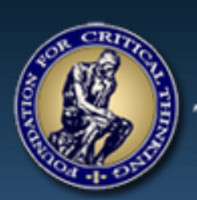If you want to hold brainstorms that unearth better, more creative ideas, it all starts with the number of people in the room.
That’s my first tip for you: Follow the “pizza rule” for brainstorming. If you’re unfamiliar with the “pizza rule,” it’s the idea that if you have more people in a room than you could feed with a pizza, there are too many people in that room to hold a productive meeting.
The same rule goes for a brainstorming session: If you’ve got a dozen people sitting around a table, expect a really long list of truly mediocre ideas.
So, what else can you do other than bribe a group of two to six people with pizza to unearth good ideas? So glad you asked.
Via The Learning Factor



 Your new post is loading...
Your new post is loading...














You can’t always pull creativity out of thin air, but you can design situations that foster creative ideas.
As a High D/I on the DiSC model I've always loved a good brainstorming session. Nice little article to get you thinking and perhaps change things up a little in the boardroom. Also check out Edward De Bono's 6 Thinking Hats book - fast and effective way to problem solve involving brainstorming that you might also like to read. Have a great week ahead.